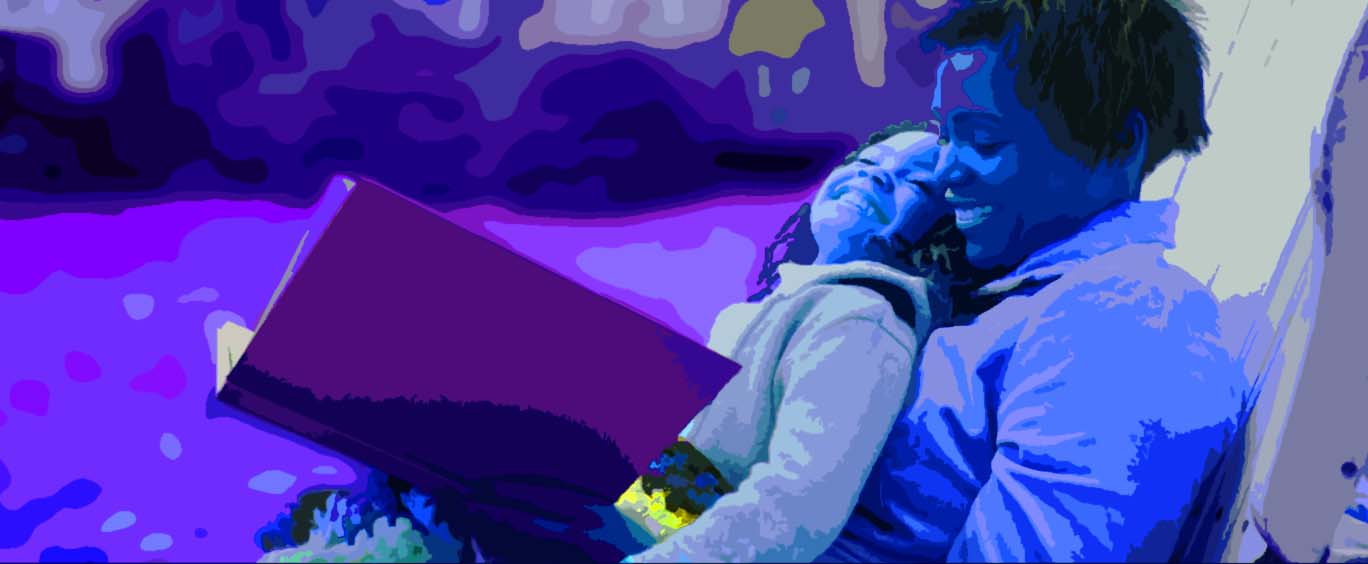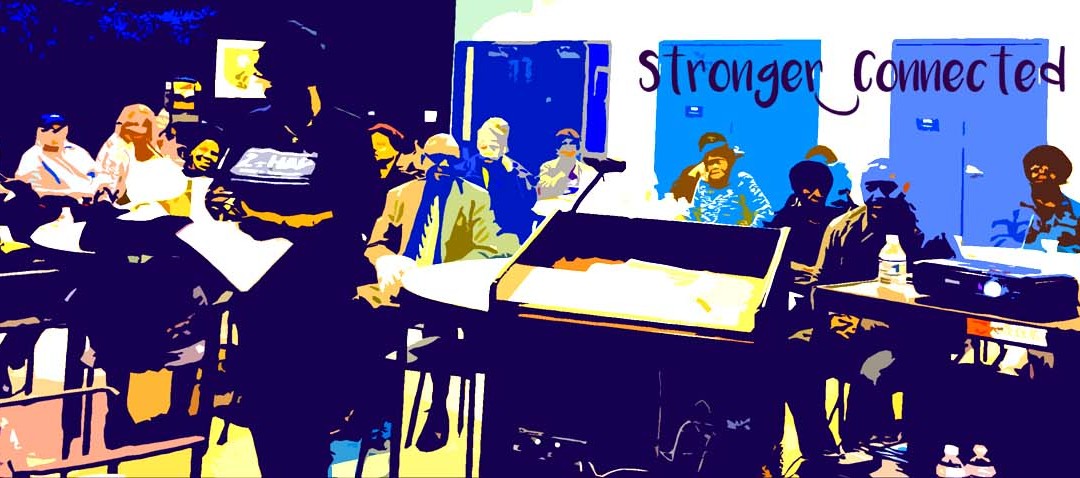The Thriving Communities Collaborative (TCC) was excited to have the opportunity to engage in a dialogue with the older adults who come to the Z-HAP Fridays at the Zeta Center for Healthy and Active Aging in the South Park Heights Community. We had only visited once before, but it was clear that the community members who attend Z-HAP Fridays are active, engaged, and concerned about the things that are happening in their lives and their community. We were looking forward to getting their input on how we can strengthen connections as well as to learn what makes sense to them in talking about childhood trauma. We feel that it is so important to leverage community resources and get their input in developing workable solutions as part of our #strongerconnected initiatives.
The Zeta Healthy Aging Partnership (Z-HAP) was founded, developed and implemented by Betsy D. Simon in 2009 to support the work done at the Zeta Center for Healthy Aging. Each Friday, at noon, Z-HAP offers health education and self-empowerment sessions. It was a perfect fit for the TCC, as one of our goals is to increase knowledge and awareness of how trauma can impact our lives and our communities as well as how we can take action to build resilience, love, and connections as protective factors in helping our communities thrive.
When we arrived, Betsy Simon, who continues to serve as director, gave us an incredibly warm and enthusiastic introduction. It set the stage for a great discussion with the Z-HAP members. We got audience input during the presentation, regarding their understanding of trauma and resilience.
At the conclusion of our presentation and discussion, Z-HAP members offered these solutions for building stronger connections and/or building more resilient youth.

Help Out Parents.
Many of us know just how stressful life can be when there are children, particularly little babies, in the house. Yes, it can be a wonderful experience, but often parents are surviving on very little sleep and can be experiencing many situations for the first time. Offering parents some “time-off” gives us the opportunity to develop a stronger, more meaningful relationship with the children, while at the same time giving parents some needed downtime. But, participants also acknowledged that it’s important that parents don’t “overuse” this gift of time away from the children, and that we, as older adults, don’t let that happen.
Engage in Random Acts of Kindness in Public Places.
When a stranger does something kind for us, it can be unexpected, but very welcome. For example, if we see a parent struggling with a child who’s crying, sometimes doing something to try and make the child smile, can be just enough of a distraction to lessen the crying and give the parent time to get a better handle on the situation.
Do Little Things to Brighten Someone’s Day.
Little things can be very easy to do and can result in a big payoff. Whether it’s something like recovering a neighbor’s trash can lid that has blown into the street or picking up a greeting card or giving a call to a friend going through a tough time, the little things matter. When people realize that they aren’t in this world alone, that others care, it helps to form a stronger sense of community.
Take Our Youth to Church.
For many people, having a strong spiritual connection offers support during tough times. By sharing this experience with youth, we can offer them an additional opportunity to build connections in the community, an opportunity to grow spiritually, as well as an additional basis for a common bond.
Sponsor Music Lessons for Youth.
Music can be healing. Offering youth music lessons can be a great opportunity for them to uncover this avenue for healing or to aid them in mastering something new. This is particularly true if they have an affinity for an instrument or music in general. Additionally, the discipline required to master an instrument can be beneficial in life and build confidence.
Participate in Free Cultural Enrichment Activities and Expose Youth to Activities Outside of their Immediate Community.
Some youth in our communities never have the opportunity to venture outside of their immediate communities. There are several free cultural activities offered in the Baltimore metro area, and in many other cities and communities. Sharing these with a young person can broaden horizons and offer another opportunity for building a stronger, more nurturing relationship.
Set a Good Example.
We often forget that what we do is much more important than what we say. By modeling the types of behavior we expect from our youth, we set a good example. If we don’t want our youth to curse, we shouldn’t curse. If we want them to be reliable, we should keep our word. If we expect honesty, we should display it.
Provide Training and Information on Parenting.
There is so much about parenting that isn’t intuitive. Learning effective strategies for dealing with difficult situations we may face with toddlers or teens would be a great benefit. Also, understanding how important it is to engage with and nurture children, when they are young, is needed. (Sidenote: This is something we can certainly begin to do on Facebook and Twitter. Be sure to stay tuned and follow us if you haven’t already.)
Turn Electronic Devices and Entertainment Off.
It’s difficult to build connections when someone is attached to their mobile phone, television or computer. We need to be sure to engage in non-electronic activities that require imagination and live one-to-one communication. This can include things like reading or story telling.
Our thanks go out to the Z-HAP members for their contributions and suggestions around how we can build stronger connections in our communities. If everyone committed to doing one thing to make our communities stronger, imagine how much better off we could be!

